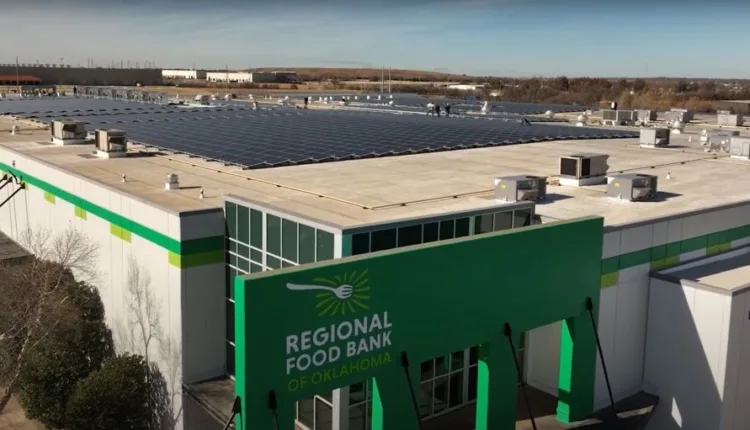
Third-party solar power benefits Oklahoma nonprofit, high school
TL/DR –
The Inflation Reduction Act, signed into law in 2022, offers significant tax incentives to promote a shift towards renewable energy sources in the US. A liaison company named Brightwell is helping establish partnerships between wealthy individuals, corporations, and nonprofits to benefit from these incentives through investments in solar energy. Entities such as the Regional Food Bank of Oklahoma and Norman North High School have already installed solar panels, leading to reduced energy bills and significant overall savings, which in turn allow them to direct more resources towards their respective missions.
Oklahoma Nonprofits and Schools Benefiting from Solar Energy Investment Initiative
Oklahoma nonprofits and schools are now shifting to solar energy through a strategic investment scheme. The Inflation Reduction Act, signed into law in 2022, offers a staggering $369 billion in tax incentives to promote the use of renewable energy sources in the US.
This act has fast-tracked third-party solar ownership, providing benefits for both investors and nonprofits. Investors, often anonymous, secure tax credits depending on the project magnitude, while nonprofits enjoy decreased energy bills.
Brightwell, a leading company, serves as a liaison, forming partnerships between wealthy individuals, corporations with tax liabilities, and nonprofits with limited budgets and high energy costs. Brightwell’s CEO, Tony Capucille, expressed that the company transforms individuals and corporations into impact investors through tax equity investment, capitalizing on the significant tax incentives provided by the federal government for those adopting solar power.
The Regional Food Bank of Oklahoma had 1,512 solar panels installed in late 2023. Capucille highlighted that the investor handles the system management post-installation. He further explained that the initiative involves local investors and projects, thereby bypassing large investment firms.
The food bank reimburses the investor for the system over a specific period. All transaction details are handled by the director of generosity, in collaboration with the organization’s CPA.
Cassie Gilman, CDO at Regional Food Bank of Oklahoma, stated that switching to solar power aligns with their innovation journey, promoting sustainability. She anticipated a significant 50% drop in energy use and a 40% decrease in their current bill. Austin Prickett, RFBO’s marketing manager, emphasized that the cost savings would translate into more meals for food-insecure individuals across 53 Oklahoma counties and potentially expand their network.
A forecasted 30-year savings of approximately $5.7 million for the nonprofit was revealed in a presentation. Furthermore, Norman North High School is set to embark on the installation of 488 solar panels next week, expecting a 100% energy offset and estimated 30-year savings of $1 million, as per information from Brightwell.
Associate superintendent of Norman Public Schools, Justin Milner, stated that the investor component enables schools to benefit from solar power, enabling the savings to enhance the educational experience. “It’s a win-win,” Milner said. He pointed out that while they initially faced budgeting challenges for the solar project, they can now leverage the opportunity, expecting the solar system to be operational in a few months.
—
Read More US Economic News
